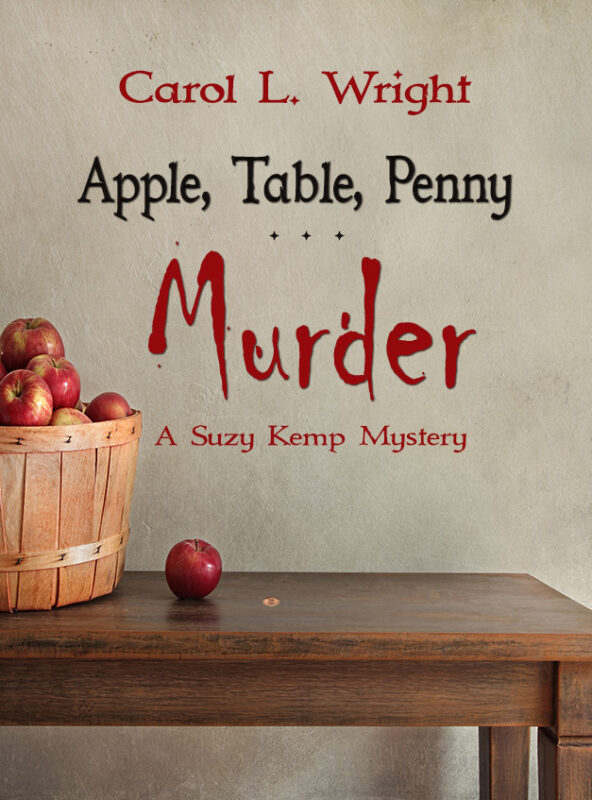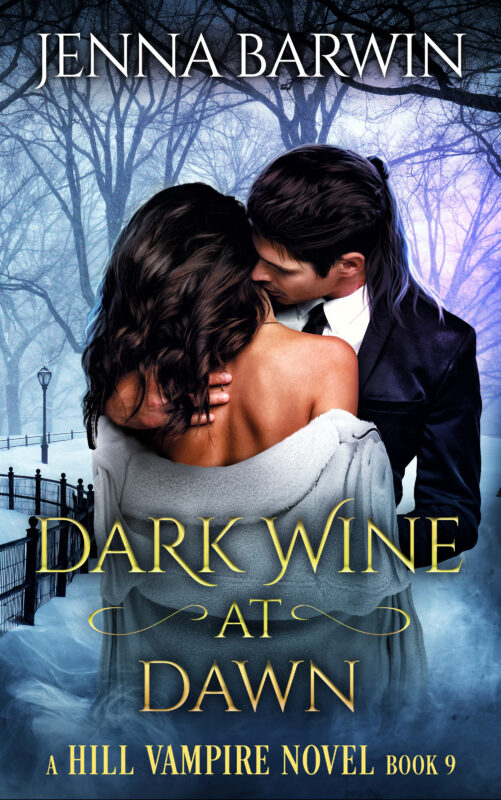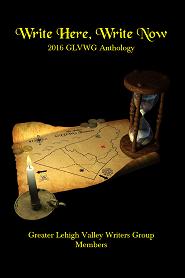Yankee Thunder: The Legendary Life of Davy Crockett
August 17, 2021 by marianne h donley in category Apples & Oranges by Marianne H. Donley tagged as Davy Crockett, Legends, lessons
Today is Davy Crockett’s birthday.
Almost everyone over a certain age will now start singing the Disney Theme song and imagining Fess Parker in a coonskin cap, but not me. Oh, I pass the age test, but I have a book that belonged to my mother, titled YANKEE THUNDER: The Legendary Life of Davy Crockett. That depiction of Davy Crockett wins out over the TV show for me, but not without a bit of sadness.

Written by Irwin Shapiro with pictures by James Daugherty, it was a fixture of my childhood. In the book Davy is born man-sized, weighing in at two hundred pounds and fourteen ounces. To feed him, his parents plant him in the ground and water him with wild buffalo’s milk mixed with boiled corn cobs and tobacco leaves.
He grows so big that by chapter four his family must whittle him down to man-size. Out on adventures, Davy finds two unusual pets, a bear named Death Hug, and a buffalo called Mississip.
As much fun as all this is, unfortunately, I would never recommend the book today, especially not for children. While the book shows Davy Crockett as sympathetic towards native people, native people themselves are characterized in the most bigoted and stereotypical way.
I hope we have learned in the 78 years since Yankee Thunder was published not to use negative and hurtful stereotypes in our writing. I’d like to think our stories can be recommended without reservation.

Whittling down to man-size 
Be sure you’re right, then go ahead. 
Title page
Stop! 10 Things Writers Shouldn’t Do
July 15, 2017 by Rebecca Forster in category The Write Life by Rebecca Forster, Writing tagged as inspiration, lessons, rules, writing
DON’T EVER. . .
 1.Stop Reading: After a long day of writing, the last thing you want to do is pick up someone else’s book – do it anyway. It will help you relax and keep you motivated – not to mention you might pick up a few literary tricks along the way
1.Stop Reading: After a long day of writing, the last thing you want to do is pick up someone else’s book – do it anyway. It will help you relax and keep you motivated – not to mention you might pick up a few literary tricks along the way
2. Rely on Inspiration: Inspiration is a contact sport. Pound the keys, search the web for topics that are compatible with your story, be proactive about inspiration.
3. Veer From Your Genre: So you want to write the first science fiction, erotic, mystery, romance? Don’t do it. If you want passionate and engaged readers make sure your book can be defined.
4. Get Boring: If you’re bored writing your book chances are that your readers will be bored reading it. Take your book to the top and then go over it. Conflict moves stories.
5. Default to Perfection: Men are fearless, women are sexy and everyone is just too cool for school. Readers want to relate to your characters – imperfections, shortcomings and all.
6. Lose the Through Line: Remember what story you’re writing. If you started out writing about a girl torn between her family and a soldier she loves, don’t go off into political discourse about war.
7. Be Afraid to Cut, Cut, Cut: Cut close to the bone and let the reader see the skeleton of your book instead of burying her in unnecessary description or dialogue. Let a reader’s imagination fill in the rest.
8. Throw in the Towel: The easiest thing in the world is starting a book; the hardest thing is finishing one. The cool thing is that you can do it with just an ounce more determination and patience. Yes, an ounce.
9. Don’t Do it Alone: For some writers a critique group works. For others it’s one trusted voice cheering them on. Writers may live with their fictional characters, but they thrive with a friend(s) who believes in them.
10. Beat Yourself Up: The book isn’t shaping up the way you want? Someone read a chapter and didn’t care for it? Feel like jumping off a cliff? You can spend your time beating yourself up, or beating the keys on your computer. Beat the keys and show the world what you’re made of. We’re all waiting for your book.
2 0 Read more
Isabel Swift comments on the lessons of Rudolf, the red-nosed reindeer
November 24, 2011 by Isabel Swift in category From Isabel Swift tagged as Isabel Swift, lessons, RudolfSome years ago I did a post on Rudolf the Red-nosed Reindeer. It’s a song that always troubled me, as it seemed so out of keeping with the general aspiration holiday cheer.
Rudolf, the Red-nosed Reindeer is such a straightforward statement that if you are or look different, others will ridicule, shun, humiliate and reject you. As you may recall, the other reindeer “laugh and call him names/They never let poor Rudolph/join in any reindeer games.”
That is his life until everyone suddenly discovers that the very thing that made him different will in fact deliver a unique and crucial skill that will overcome what had been an insurmountable obstacle. Of course, “Then all the reindeer loved him/as they shouted out with glee,/Rudolph the red-nosed reindeer,/you’ll go down in history!”
Clearly, for some people, anyone that is different is seen as a threat.
Perhaps some people assume if something is different it must be an enemy (?)
Perhaps some people think that, since they are perfect, anyone that doesn’t resemble them is less than perfect, and must be eliminated (?)
Perhaps some people think they are perfect, thus everyone else must also think they are perfect, so their differences are in conflict, and are an alarming threat to some people’s own belief system, sense of self-satisfaction and comfort (?)
But some people appreciate differences in others.
Perhaps they respond to the fact that evolutionary theory rewards those species that have variety, as it gives them more options for species survival to respond more effectively to a changing world. If a species becomes too uniform, then one problem can wipe out the entire species, because all are equally vulnerable (?)
Perhaps they realize that variety enhances survival because not everyone wants the same thing at the same time, diminishing competition and allowing peaceful coexistence (?)
Perhaps they have internalized the Rudolf lesson, that the very things that make someone different will offer key skills to the team, and make the sum far greater than each individual part—a central theme in romances (?)
And clearly, the trial by fire that so many live through in environments that penalize differences can forge powerful, creative and remarkable human beings.
But it is hard on the young. For the lessons we learn in Kindergarten are not pretty and many live their whole lives trying to overcome or find forgiveness for what happened then.
In an effort to prevent teen suicides among kids with gender and sexuality issues there are resources. It gets better.org or The Trevor Project are two.
The focus there is gender, but the basic issue is the same. Being different may not be an easy road, but it gets better—even for Rudolf. And adults have only to pause for an instant to think of all the people who were “different” that have transformed their lives and the world around them and value and support the gift of being different.
Here’s hoping that the coming season gives us all things to be thankful for—the gift of accepting—indeed of celebrating our differences. For therein lies our strength.
Isabel Swift
1 0 Read moreAffiliate Links
A Slice of Orange is an affiliate with some of the booksellers listed on this website, including Barnes & Nobel, Books A Million, iBooks, Kobo, and Smashwords. This means A Slice of Orange may earn a small advertising fee from sales made through the links used on this website. There are reminders of these affiliate links on the pages for individual books.
Search A Slice of Orange
Find a Column
Archives
Featured Books
APPLE, TABLE, PENNY . . . MURDER
How can you explain a disappearance when everyone denies it happened?
More info →WEREWOLVES IN THE CHRISTMAS CITY
Bethlehem, PA has a werewolf problem.
More info →WRITE HERE, WRITE NOW
2016 GLVWG Anthology (GLVWG Anthologies Book 2)
More info →Newsletter
Contributing Authors
Search A Slice of Orange
Find a Column
Archives
Authors in the Bookstore
- A. E. Decker
- A. J. Scudiere
- A.J. Sidransky
- A.M. Roark
- Abby Collette
- Alanna Lucus
- Albert Marrin
- Alice Duncan
- Alina K. Field
- Alison Green Myers
- Andi Lawrencovna
- Andrew C Raiford
- Angela Pryce
- Aviva Vaughn
- Barbara Ankrum
- Bethlehem Writers Group, LLC
- Carol L. Wright
- Celeste Barclay
- Christina Alexandra
- Christopher D. Ochs
- Claire Davon
- Claire Naden
- Courtnee Turner Hoyle
- Courtney Annicchiarico
- D. Lieber
- Daniel V. Meier Jr.
- Debra Dixon
- Debra H. Goldstein
- Debra Holland
- Dee Ann Palmer
- Denise M. Colby
- Diane Benefiel
- Diane Sismour
- Dianna Sinovic
- DT Krippene
- E.B. Dawson
- Emilie Dallaire
- Emily Brightwell
- Emily PW Murphy
- Fae Rowen
- Faith L. Justice
- Frances Amati
- Geralyn Corcillo
- Glynnis Campbell
- Greg Jolley
- H. O. Charles
- Jaclyn Roché
- Jacqueline Diamond
- Janet Lynn and Will Zeilinger
- Jaya Mehta
- Jeannine Atkins
- Jeff Baird
- Jenna Barwin
- Jenne Kern
- Jennifer D. Bokal
- Jennifer Lyon
- Jerome W. McFadden
- Jill Piscitello
- Jina Bacarr
- Jo A. Hiestand
- Jodi Bogert
- Jolina Petersheim
- Jonathan Maberry
- Joy Allyson
- Judy Duarte
- Justin Murphy
- Justine Davis
- Kat Martin
- Kidd Wadsworth
- Kitty Bucholtz
- Kristy Tate
- Larry Deibert
- Larry Hamilton
- Laura Drake
- Laurie Stevens
- Leslie Knowles
- Li-Ying Lundquist
- Linda Carroll-Bradd
- Linda Lappin
- Linda McLaughlin
- Linda O. Johnston
- Lisa Preston
- Lolo Paige
- Loran Holt
- Lynette M. Burrows
- Lyssa Kay Adams
- Madeline Ash
- Margarita Engle
- Marguerite Quantaine
- Marianne H. Donley
- Mary Castillo
- Maureen Klovers
- Megan Haskell
- Melanie Waterbury
- Melisa Rivero
- Melissa Chambers
- Melodie Winawer
- Meriam Wilhelm
- Mikel J. Wilson
- Mindy Neff
- Monica McCabe
- Nancy Brashear
- Neetu Malik
- Nikki Prince
- Once Upon Anthologies
- Paula Gail Benson
- Penny Reid
- Peter J Barbour
- Priscilla Oliveras
- R. H. Kohno
- Rachel Hailey
- Ralph Hieb
- Ramcy Diek
- Ransom Stephens
- Rebecca Forster
- Renae Wrich
- Roxy Matthews
- Ryder Hunte Clancy
- Sally Paradysz
- Sheila Colón-Bagley
- Simone de Muñoz
- Sophie Barnes
- Susan Kaye Quinn
- Susan Lynn Meyer
- Susan Squires
- T. D. Fox
- Tara C. Allred
- Tara Lain
- Tari Lynn Jewett
- Terri Osburn
- Tracy Reed
- Vera Jane Cook
- Vicki Crum
- Writing Something Romantic
Affiliate Links
A Slice of Orange is an affiliate with some of the booksellers listed on this website, including Barnes & Nobel, Books A Million, iBooks, Kobo, and Smashwords. This means A Slice of Orange may earn a small advertising fee from sales made through the links used on this website. There are reminders of these affiliate links on the pages for individual books.




































